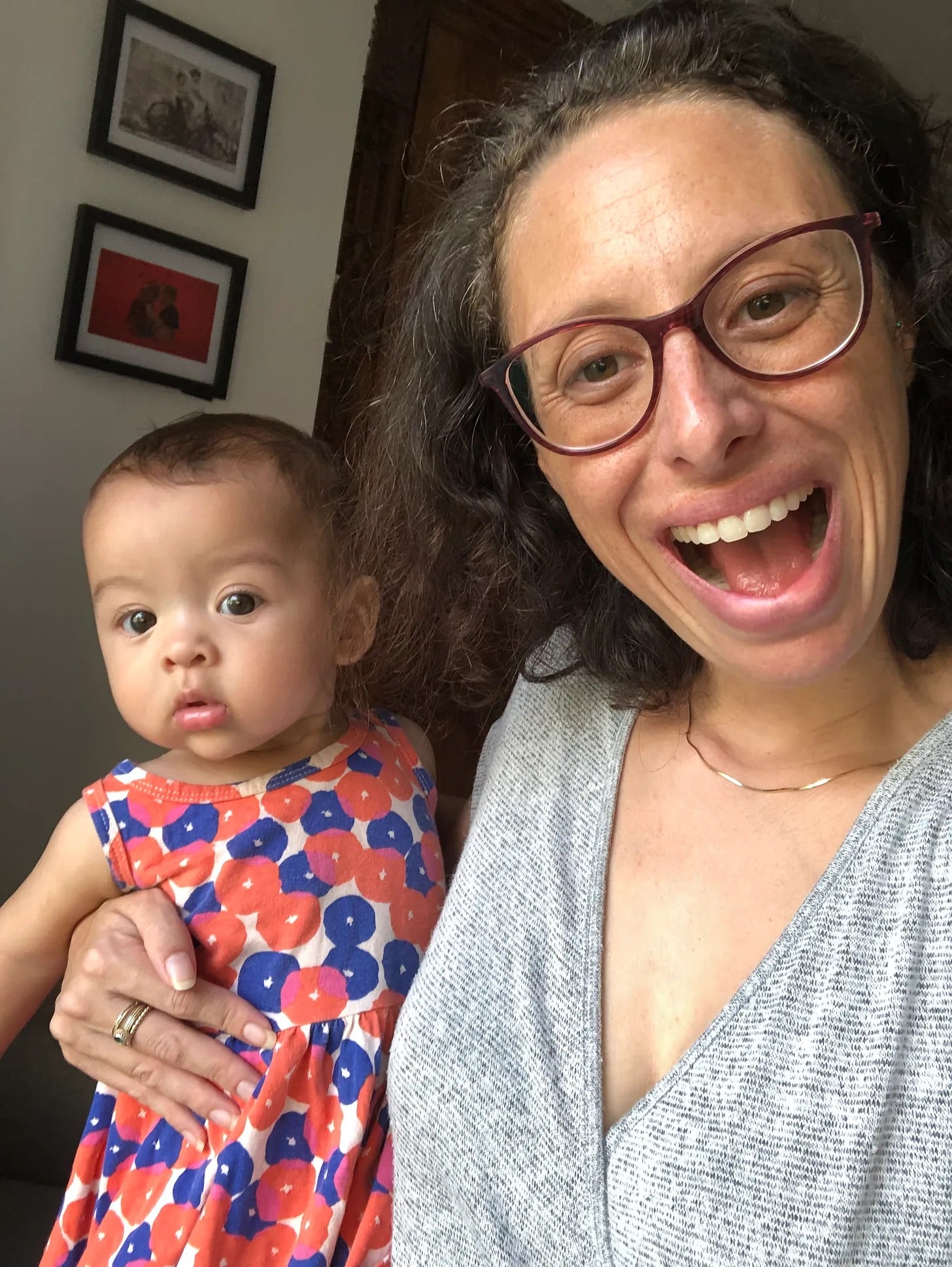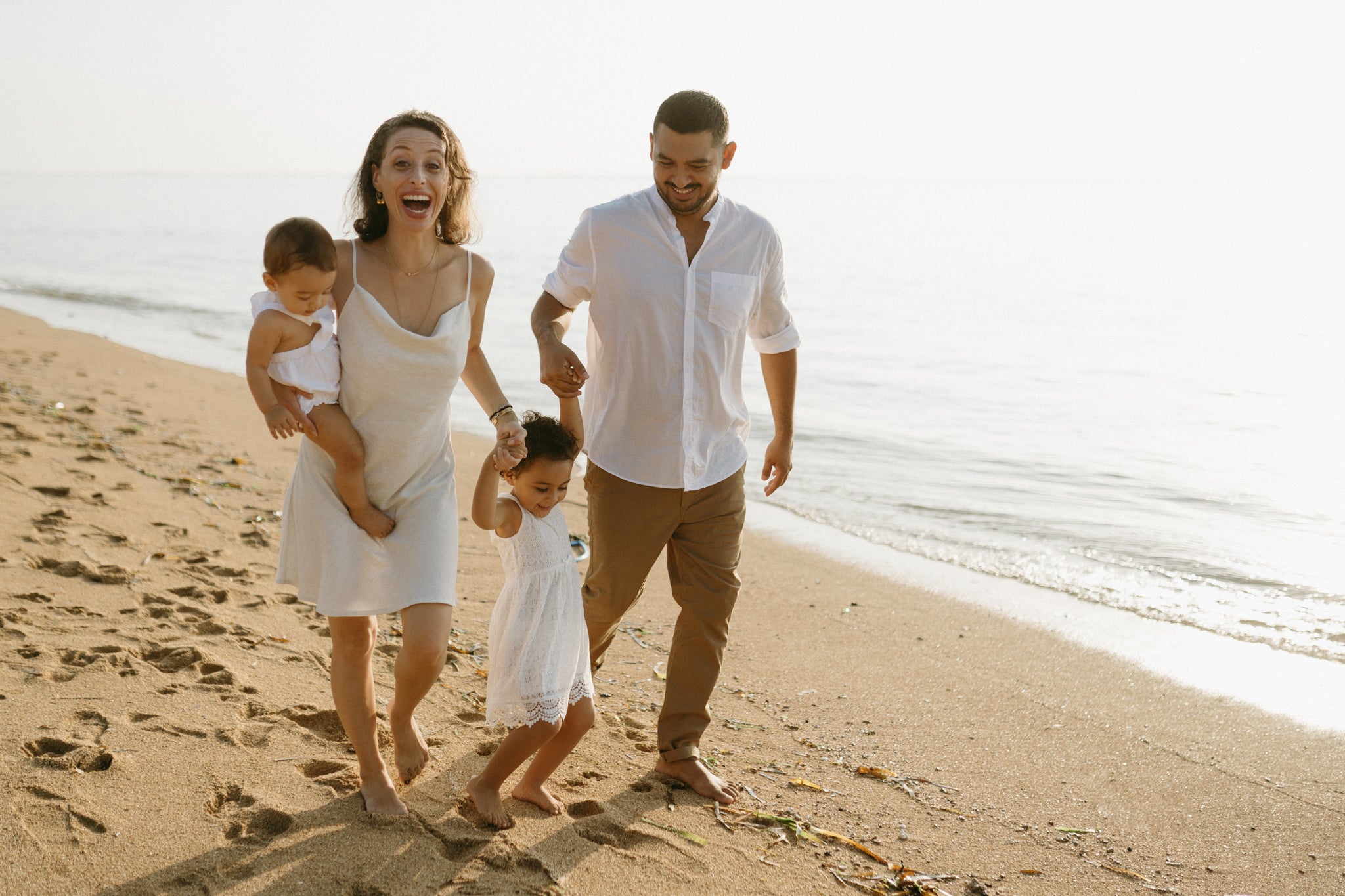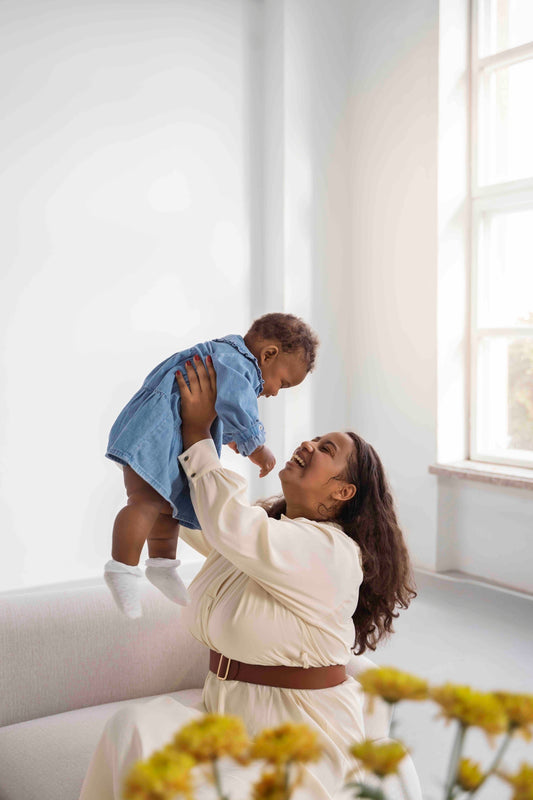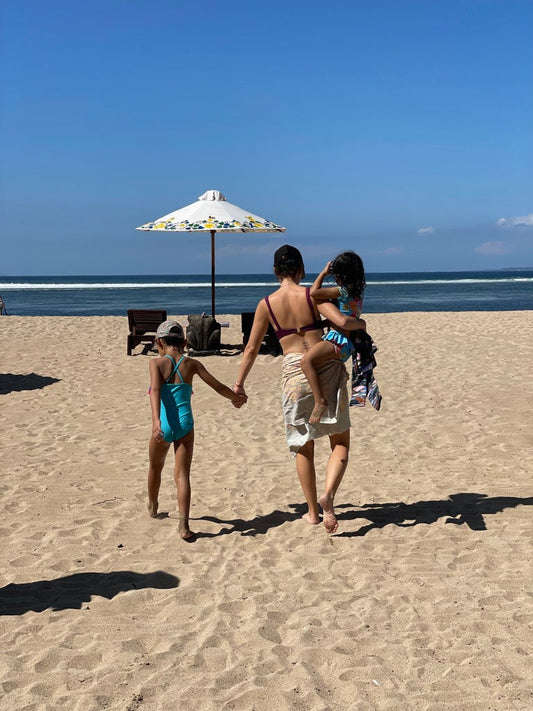The Beginning
When a mother is born, the woman is forever changed.

I was bouncing my second child. I had been a mother for 3.5 years, my eldest was 3.5 years old, and my youngest 8 months old. I bounced her sweet little body, sitting in front of window, trying to get some rays of sunshine on my body and hoping that in the process my body would suck in nutrients and absorb energy to continue moving forward. I looked out to our pool, and had flashes and visions of myself walking to the deep end. I asked myself questions of would I take her with me, how would I keep my body down, and why does my brain literally feel like it’s crumbling and this is now an option.
Based on research, what increases mother’s predispositions to post-partum depression, along with living and home life, I was not on the radar for mental health issues. I was not a person that would be tagged as at risk. I am a naturally inclined person towards happiness, I am a psychologist with extensive experience within the women’s health, I have great communication with a loving partner, and I have the means to have childcare and supports around me. So how could this be happening, why was this happening, and “who am I” to be experiencing this since there are mother’s all around the world who fair far worse.
What scared me the most is the calmness I felt in those moments of looking out to the pool, a true quiet contemplation of something that had never been part of my constitution prior to having children. I am so thankful that within these moments of quiet contemplation, I also had a strong internal voice based on years of personal growth work of knowing that “this is not me”. So, one day my husband came home, and I remember telling him about the thoughts, about my quiet contemplations. He sat with me, he called work and cancelled everything, and we talked, we made plans of support for me, but most of all I felt like I had shared with him a secret of “my brain doesn’t feel right” and something about that in itself set me free and allowed me to share the burden and fears of the thoughts.
Not every person’s transition into motherhood is filled with these experiences, but inevitably there are radical transitions and changes, many moments of “huh, who am I right now” or “oh this doesn’t feel like the old me.” For some the changes and transitions are welcomed, for others they are surprising, foreign, uncomfortable, and not easy.
This space is about the transition into motherhood. It is not a parenting blog, it’s not a blog about a child’s development, and it’s not even about how to be a mother. It is about the mother. The journey into the experience and identity of mother. Rooted in science, I share about what actually may be happening in your body, but there are also so many nontangible things that happen in motherhood, that are experiences, slow changes, and spiritual perhaps. So, I also share stories of mothers. Researcher Emily Ngowski writes about the shared connection, “The wholeness that we experience as an organism comes not from ourselves on our own but from us the way we connect with other people with our sense of something larger, in the universe. Human beings are not built to do big things alone, we are built to do them together." What makes writing about motherhood difficult is that the experience of motherhood is literally influenced by every single things in life; how you became a mother, environment, SES, relationship status, age, health, religion, culture, trauma, natural disasters. You name it, it can, has, or will impact the experience of mothering. So I include stories not to assign a general experience, but allow there to be a shared connected that can help us as mothers to maybe find our own story or insight within the stories of others.
For this space I interviewed a plethora of women around the world of different ages, different entry experiences into motherhood, and different life experiences with mothering. While their stories were all so different (and always highlighted or sparked something new for writing in this space), whenever I reached out to interview them or we began the actual interview they met me with two primary emotions. Firstly it was joy and excitement to talk about their mothering, Emily* excitedly shared with me “ohhh I would love to talk to you about it, I never get a chance to sit and really think about me as a mom.” Followed often by and sheepishly shared before starting the interview, something about a bit of anticipatory anxiety or even some shame that their experience in mothering has been different, they have their own internal judgement about it, or that somehow it’s been more difficult for them than others (and judging themselves about this). When I started writing about mothering I wanted to just talk with other women in my community to really assess if this was a topic of interest, hone in my interview questions, and get a sense of the content before bringing it to a larger interview pool. A mommy friend of mine texted me “as you know, I’m not terribly proud of my struggles with motherhood. But I also think this is important that people who had the same struggles as me know they aren’t weirdos.” This is why I moved forward with writing here on Substack, and maybe selfishly it’s because I too needed to find the science and stories to tell me I am not in fact a weirdo. I am in fact a woman who had three pregnancies, birthed two babies, and despite all my education, experience, and privilege, I have struggled, I grappled between loving my babies and wondering why was it so hard at times, I experienced guilt for engaging in self-care that ultimately helped me become a better mom, I wondered if I have negatively impacted their secure attachment by having to work, I felt like a failure as a mother at times, my relationship to self changed, and my marriage got rough at times. I hope that the writings in this space finds their way to wrap a big hug around you, and affirm whatever experience and journey you have had into motherhood.

In this space, “mother” is to reference any person who identifies as a mother, at any stage of life in mothering, no matter how they birthed, or how that child came into their life. While the experience of the mother is unique to each, the experience of motherhood is a journey and this space is intended to speak to each of those unique journeys. In the beginning chapters I do reference psychobiological changes that happen within a person when they are pregnant or adopt, although it is recognized by myself and an abundance of literature that we can come into the experience of motherhood at many different points of life. For instance my Aunt who got married at the age of 45 to a widowed man and his 8 year old son. She has served as a mother figure in this now grown man’s life, and while she did not birth him, adopt him, or even serve in the role of mother in his early developmental years she would talk about the radical changes she began to feel in her identity, relationship with the world, and the indescribable sense of protection and nurturance rooted in love for that boy. At different points in writing, I refer to the mother in the feminine form. Not as an assigned gender, rather as a feminine essence that is often inherited (or even expected) by cultural and societal constructions of most people who identify as a mother. How each person identifies in their construction of gender and parent role, is incredibly individually based, and I hope that any person who identifies as a mom (no matter their gender or sex), find their story or experience in this space.
There are many different paths into motherhood. Some are planned, some are abrupt. Some don’t go as planned, and others work out better than anyone expected. Some are biological mothers, some are foster mothers, adopted mothers, or step mothers. The path into motherhood is as unique as each child we parent is. While I cannot speak to each unique path into motherhood, anytime you see moms come together no matter their ages or experiences, there is a sharing and sense of connection that happens from within when they begin to talk about their kids, sharing about their kid’s development or happenings in their lives. As writing about the mother, this space doesn’t focus on the child, but rather back to the internal experience of the mother and how that influences and interacts with her external world.
No matter how or when a child comes into our lives, no one is given a manual. Yes there are a plethora of parenting books, and often the topics of sleep deprivation, post partum, changes in routine, and development are the top headliners, but what about you. What about the significant emotional, mental, physical, social, relational, spiritual and identity shifts that happen? It’s actually quite hard to encapsulate the full scheme of them, because one could really lean into the data and scientific research. Explaining all the changes that occur and why, but that seems to overlook so many indescribable and small changes. Then on the other side, leaning into the more metaspiritual changes, feels like it doesn’t ground the actual experiences in something that makes sense, and has reasons behind it. What I seek to do in this space is encapsulate the full range of experience. Thus when there is data and science to explain and validate a mother’s experience, that is shared. When there are words found to describe what sometimes feels indescribable, that is honored as a sacred experience of the motherhood that does not actually need explanation of data.
In the transition to motherhood, and similar to what my Aunt experienced when she began to step into the mothering role during middle age, it is not just within the mother that she begins to see herself differently, but that society also begins to look at them differently. Many people who I interviewed shared about early on in their journey, no longer being seen as an autonomous human. They are just mother. They become a human that has a child, defined almost solely by the child. Becoming a human with a child that is not sleeping, a good eater, excelling in sports, at college, unable to thrive etc. This radical shift in the experience of the mom to her external world impacts friendships, intimate relationships, jobs, and overall concepts.
So, thank you for joining me in this space of hearing other’s stories, looking at the science that hopefully affirms what the heck is actually happening, and also allowing ourselves to hold space that some of the transitions in this journey happen on a level whether that be metaphysical, energetic, or spiritual, that transforms a woman.
You might also like...
View all-

What If We Treated Mothers Like the Sacred Forc...
What if we stopped seeing mothers as exhausted, self-sacrificing caretakers, and instead honored them as powerful forces of creation, transformation, and love? What if motherhood wasn’t the thing that quietly...
What If We Treated Mothers Like the Sacred Forc...
What if we stopped seeing mothers as exhausted, self-sacrificing caretakers, and instead honored them as powerful forces of creation, transformation, and love? What if motherhood wasn’t the thing that quietly...
-

On Being Brave
I did something brave this month. Brave for me. Brave in a way that wasn’t about physical risk or doing a grand adventure, but instead about stepping over quiet, persistent internal hurdles. Ones...
On Being Brave
I did something brave this month. Brave for me. Brave in a way that wasn’t about physical risk or doing a grand adventure, but instead about stepping over quiet, persistent internal hurdles. Ones...
-

How Can We Redefine "Success" in Mothering
I ask you to bear with me through this share. I am just coming to make sense of something in my own mind, that I wanted to share with you,...
How Can We Redefine "Success" in Mothering
I ask you to bear with me through this share. I am just coming to make sense of something in my own mind, that I wanted to share with you,...



